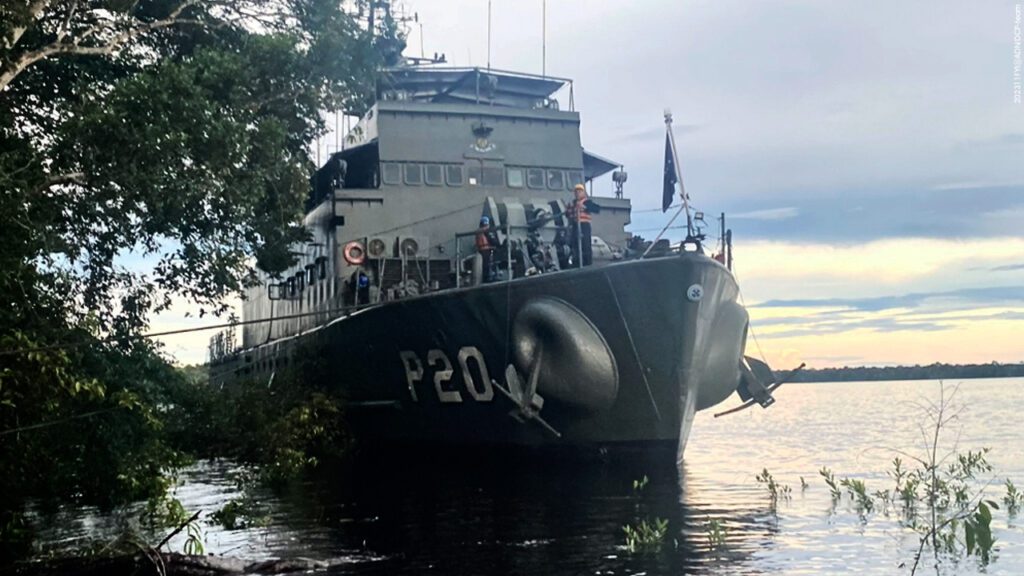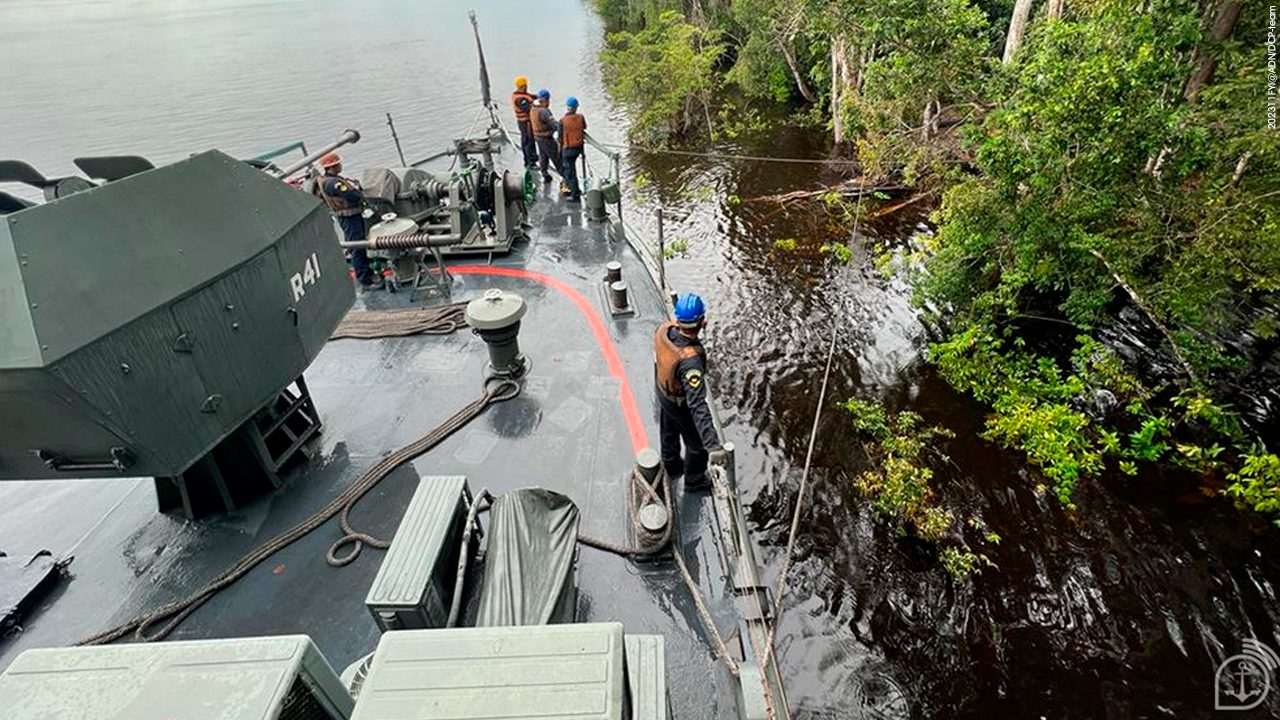The practice is common in areas of the Amazon and the Pantanal
By First Lieutenant (RM2-T) Luciana Almeida – Manaus, AM
Little known in most of the country, but very common in the Amazon and the Pantanal due to the rivers in these regions, “abarrancagem” is a way of mooring vessels using tree trunks as support when there is no port or pier nearby or with the capacity to receive the vessel.
The practice is also used when the aim is to keep the vessel camouflaged in the area, for an inspection operation, for example. Anchoring, on the other hand, is another way of “parking” the ship, i.e. stopping the engines so that it remains stationary at a certain point on the river or sea, when the anchor (which, in the Navy, is called an “iron”) is dropped into the water.
According to Corvette Captain Vinícius Fagundes, who has served both in the Pantanal and in the Amazon region, where he was Commander of the Fluvial Patrol Vessel “Pedro Teixeira”, anchoring requires care and attention, especially at night, when visualization is reduced. “When there is no place for the ship to dock, you have to choose a spot on the riverbank where there are large, strong and resistant trees.
We make a slow approach to the ship and pass the spies (mooring lines) so that the vessel is safe for the time it needs to stay in the area.”
When the ship is sailing, the military choose a point on the nautical chart for boarding, as Corvette Captain Vinícius explains. “We use binoculars or send military personnel by speedboat to check that the trees are sturdy and firm, and that there are no excess branches, so as not to damage the ship. The ship ‘Pedro Teixeira’, for example, operates with aircraft on board, so we have to be careful that no branches are scattered on the flight deck.”
Anchoring vs. Abarrancagem
Abarrancagem is generally done when the ship needs to carry out a mission on land and approaches the shore, until it finds a tree where it can tie up the spies and remain stabilized, becoming a base for the service to be provided, for example, in a Civic-Social Action. At anchor, the ship remains stable on the riverbed, and speedboats must be used for the soldiers to disembark and carry out their mission on land.
With regard to the differences between this activity in the Pantanal and the Amazon, Commander Vinícius explains that the way the two regions are anchored is practically the same, with just one difference: in the Amazon, most of the time, there is no “ravine” as such, so practically all the work is done with the soldiers in speedboats. In the Pantanal, on the other hand, they are able to step ashore to pass the spies.

The challenges of river navigation
At sea, it’s possible to carry out a variety of more operative maritime tasks between ships. On the river, it’s not possible to do all types of work, because the river isn’t as wide. Even in the Pantanal, the river is narrower and it’s even more difficult to transfer light cargo because there’s no room. In the Amazon, where the rivers are wider, some work can be done, but with restrictions. “Another point to pay attention to is navigating the river at night, because you may come across a smaller vessel. The area is short, so there’s less room to dodge. In addition, it is more common to run aground on the river, because the rivers are not regular,” he explained.
For the ship’s master, Chief Petty Officer Alexandre Siqueira dos Santos, making a ditching in the Amazon is interesting because it’s a different task to that carried out on a pier. “We have to look for the best tree that can support the number of spikes and is strong enough to hold the ship, so that it doesn’t let the bow (front area) or the stern (rear) move, and we also have to cross these spikes to make them fit the sailor’s standard,” he said.
He also pointed out that, as the person in charge of maneuvers and repairs, he also has to keep an eye on the safety of the personnel involved in each activity, especially when launching. “I check that everyone is wearing personal safety equipment and we also test all the equipment before each maneuver,” he said.
